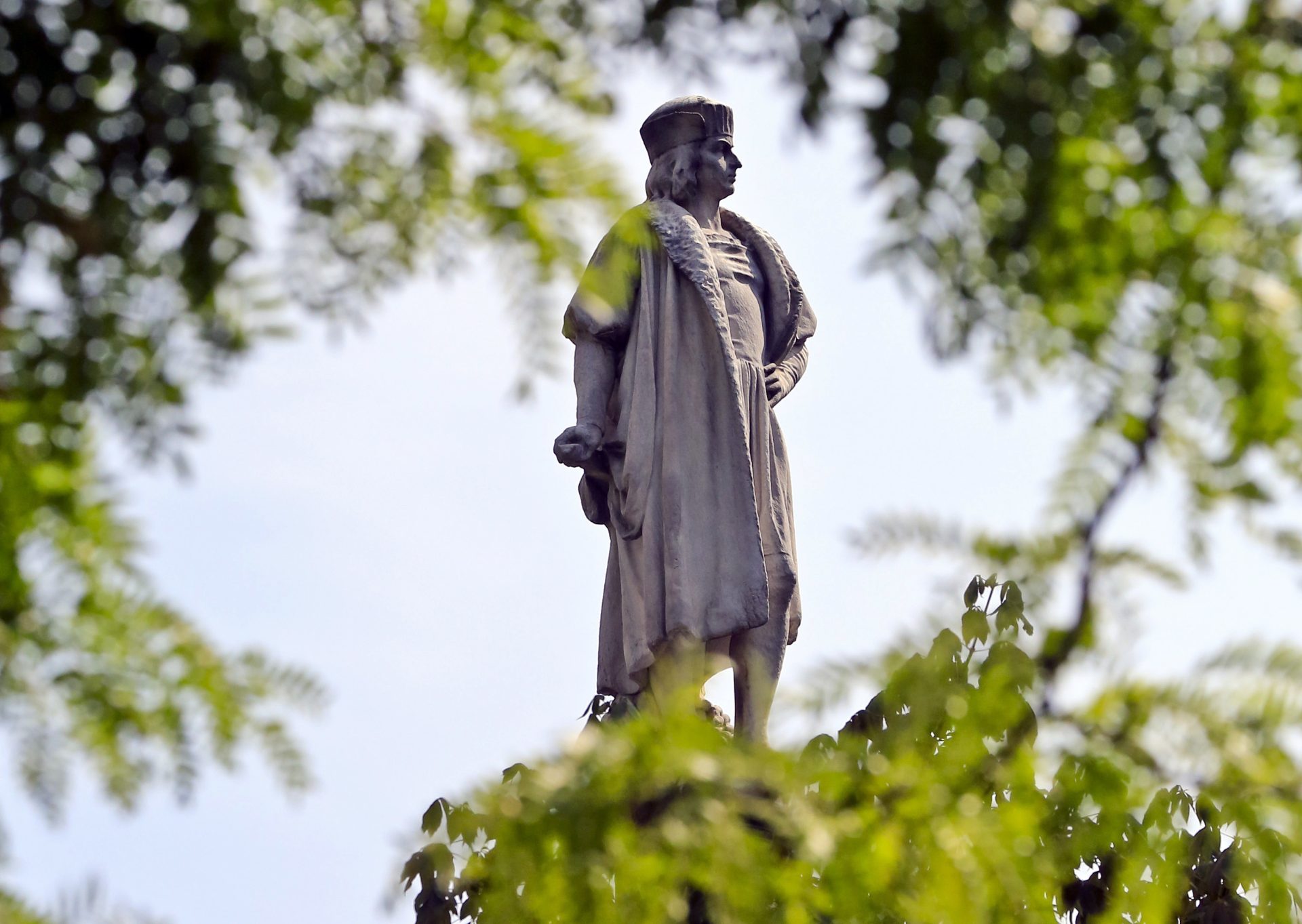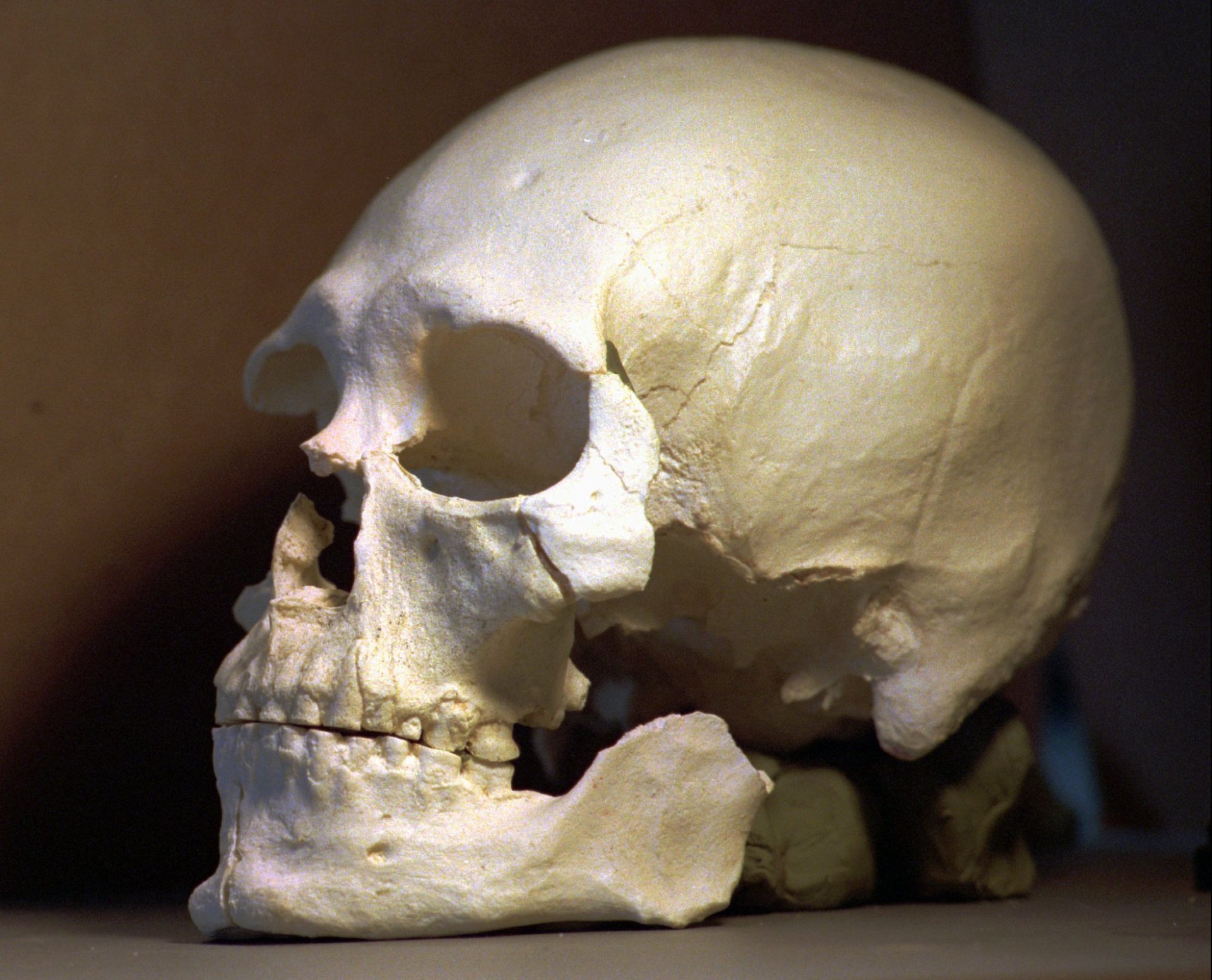|
Only have a minute? Listen instead
Getting your Trinity Audio player ready...
|

Nine thousand years ago a man died along the Columbia River. About 40 years old, he stood 5 feet, 7 inches tall and his 160 pounds were all lean, compact strength. He was no stranger to injury. In his life, he had skull injuries, five broken ribs and a spear point lodged in his pelvic bones. In each case he recovered, which means he had someone to care for him. When he died, cause unknown, he was buried with dignity.
He is called Kennewick Man. He came to North America long before the peoples currently called Native Americans arrived. DNA evidence proves he is not related to them. If there is a real “first” American it is this man, most closely related to two far flung groups: Polynesians and the Ainu of Japan. If you are a Native American, and think you have a historic right of ownership to North America, look over your shoulder. Kennewick man not only predates you, but he did not even come via the Berengia land bridge. He is part of a seafaring group of people lost forever from our knowledge, save for the famous skeleton found by two college students walking the shores of Lake Waliullah in Washington state
In 1996 the bones of Kennewick Man were identified for what they are, this continent’s oldest fossil remains. Immediately, a storm of protest erupted. Native Americans claimed he was one of their own and wanted him back for proper burial. They are sticking to this story even in the face of physical and genetic testing to the contrary. Then the Army Corps of Engineers claimed ownership since it was found on their land. They demanded that all scientific study stop (it turns out they wanted the skeleton as a bargaining chip with the local tribes, vis-à-vis fishing and mineral rights).

At about the time that a boatload of self-serving, bureaucratic scat started hitting the fan, James Chatters, a local archaeologist, called in the big guns: He contacted Douglas Owsley of the National Museum of Natural History. Owsley is not just an expert, he is the expert in ancient American remains. When Owsley and his colleagues found out that the Corp of Engineers had taken custody of the skeleton with intentions to give it to the local tribes, they did the impossible, and sued the government.
Owsley ended up facing threats from the Justice Department, criticism from his peers and lawyers from the Corps of Engineers, the Army and the Department of the Interior. To make a very long story short, Owsley won — sort of. He and his team were given 16 days of limited study of the skeleton with the corps acting as obstructionists the whole way.
The conclusions of the study are what the Native Americans do not want us to find out. They are not the first humans on this continent; they are just the ones who won the original competition for the land. This competition was repeated when Europeans came, but with different results.
When I hear people proclaim Columbus Day as a day of subjugation for Native Americans, I hear only the opportunistic ranting of people who don’t know or understand history. We treated the Native Americans disgracefully, but they didn’t treat each other any better. They practiced slavery, infanticide, torture, duplicity and war. We brought smallpox to them, and they brought syphilis to us. Sounds like a wash if you ask me. We won so we get blamed, but our misconduct makes the existing peoples of this continent victims, not saints. I only hope the Borg treat us better when they finally get here.
The fact is that the human species originated in Africa. We wandered long and far and became competing groups. During all this competition, humanity behaved with the latitude that the times allowed. For much of human history, that latitude was what we now consider horrendous. We are animals with a reptilian brain and that does not give us much to be proud of. But we are also sentient beings who create culture, religion and a group ethos that does constrain our baser selves. That does give us both hope and a reason to be proud.
Explorers take risks that the majority of humans do not. They open up new opportunities for the pioneers who come after them. All of this is to be celebrated, but with the adult understanding that nothing is free and future generations will judge us on what we did and how we did it. What many of today’s people forget is that we too will be judged. What will our justification be for acts considered barbaric by the standards of the 22nd century? Will we say we thought we were doing the right thing by the standards of today? If so, welcome to the world of Christopher Columbus and before him the Anazazi, and before them Kennewick Man and his clan.
When you consider Columbus Day as a holiday, consider it as a celebration of all humanity and not a reason to assign winners and losers. Judge not lest ye be judged, and keep the faith.
Louise Butler is a retired educator and published author who lives in Edinburg. She writes for our Board of Contributors.





